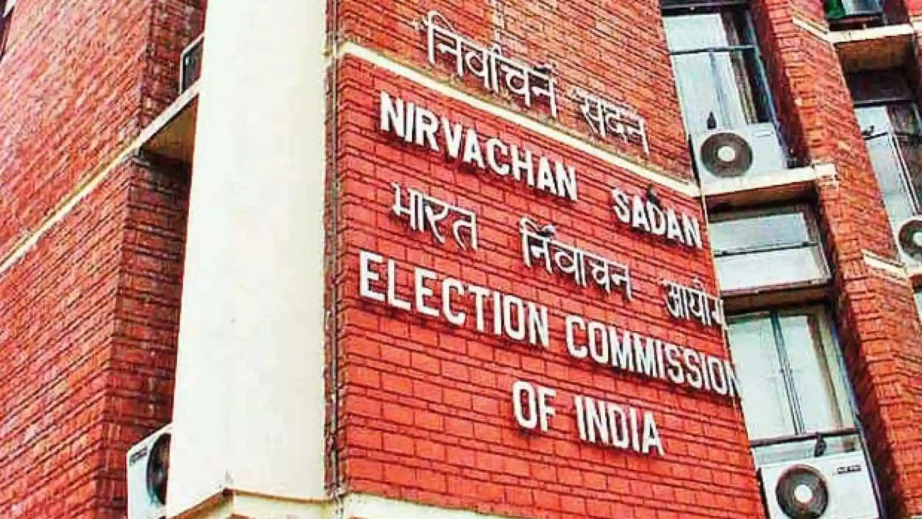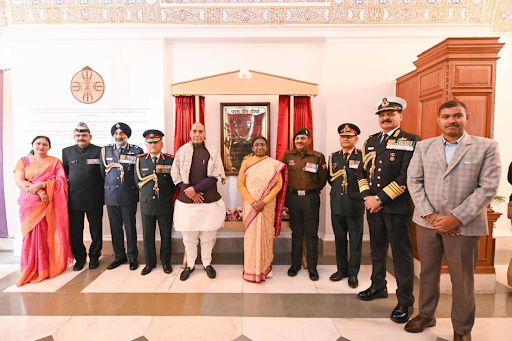Description

Copyright infringement is not intended
Context: Election Commission restored the number of star campaigners
Details:
- The Election Commission restored the number of star campaigners as COVID cases declined.
- The Election commission in October 2020 has reduced the number of star campaigners for recognized national and state parties from 40 to 30.
Star Campaigner:
- A Star Campaigner is a person chosen by a political party to appeal to the voters to vote for a particular candidate or party during the election. This person can be a politician or even a film star.
- He/she is chosen usually on the basis of popularity, and there is no specific definition under Indian law and the Election Commission.
- There is no law governing who can or cannot be made a star campaigner by a political party
- A recognized political party can select a maximum number of 40-star campaigners while unrecognized political parties can select up to 20 star campaigners.
- Section 77 of the Representation of People Act, 1951 contains the Guidelines related to Star Campaigners. The guidelines say ‘selection or release of ‘star campaigners’ is the special rights of the political party’.
- Expenditure made during election campaigns by the star campaigner is not added to a candidate’s election expenditure limit. According to the Representation of People’s Act, these expenses will be borne by the political parties.
- There are certain situations where the expenditure on rally and travel made by the star campaigner will be added to the candidate's expenditure limit:
- If the candidate shares the stage with a star campaigner in a rally.
- If the name of the candidate is mentioned by the star campaigner during a rally or any other event.
- If more than one candidate shares the stage with the star campaigner, or there are posters with their photographs, then the expenses are equally divided among all such candidates.
- If the candidates are not present but their posters or photographs have been displayed in their constituencies where a star campaigner holds a poll rally, the entire expense will be added to the election expenses of the candidate.
- When a Prime Minister or a former prime minister is a star campaigner, the expenditure made on security including on the bullet-proof vehicles will be borne by the government and will not be added to the election expenses of the party or the individual candidate.
About Recognized Political party:
- Status - Election Commission registers political parties for the purpose of elections and grants them status of national or state parties on the basis of their poll performance. The other parties that failed to fulfill the eligibility criteria are declared as registered-unrecognized parties.
- Advantage - Recognized political parties enjoy certain privileges like allocation of the party symbols, provision of time for political broadcasts on the state-owned television and radio stations and access to electoral rolls.
- Star Campaigners - Recognized parties are allowed to have 40 Star Campaigners during the time of elections and the registered unrecognized parties are allowed to have 20 Star Campaigners.
- Election Symbol - Every national party is allotted a symbol exclusively reserved for its use throughout the country. Similarly, every state party is allotted a symbol exclusively reserved for its use in the state or states in which it is so recognized.
- A registered-unrecognized party can select a symbol from a list of free symbols.
Conditions for Recognition as a National Party: A party is recognized as a national party if any of the following conditions is fulfilled:
- If it secures 6% of votes in any 4 or more states in the general election to the Lok Sabha or to the legislative assembly, in addition the party must also win 4 seats in the Lok Sabha from any state or states.
- If it wins 2% of seats in the Lok Sabha at a general election, these candidates must be elected from 3 states.
- If it is recognized as a state party in 4 states.
Conditions for Recognition as a State Party: A party is recognized as a state party in a state if any of the following conditions is fulfilled:
- If it secures 6% of the valid votes polled in the state at a general election to the legislative assembly of the state concerned, in addition the party must also win 2 seats in the assembly of the state.
- If it secures 6% of the valid votes polled in the state at a general election to the Lok Sabha from the state concerned, and in addition it must win 1 seat in the Lok Sabha from the state concerned.
- If it wins 3% of assembly seats at a general election to the legislative assembly of the state concerned or 3 seats in the assembly, whichever is more.
- If it wins 1 seat in the Lok Sabha for every 25 seats to the Lok Sabha from the state concerned.
- If it secures 8% of the total valid votes polled in the state at a General Election to the Lok Sabha from the state or to the legislative assembly of the state. This condition was added in 2011.
Note - The number of recognized parties keeps on changing on the basis of their performance in the general elections. At Present, there are 7 national parties, 52 state parties and 2354 registered unrecognized parties in the country.
https://www.businesstoday.in/latest/politics/story/election-commission-restores-number-of-star-campaigners-as-covid-cases-decline-323285-2022-02-20









